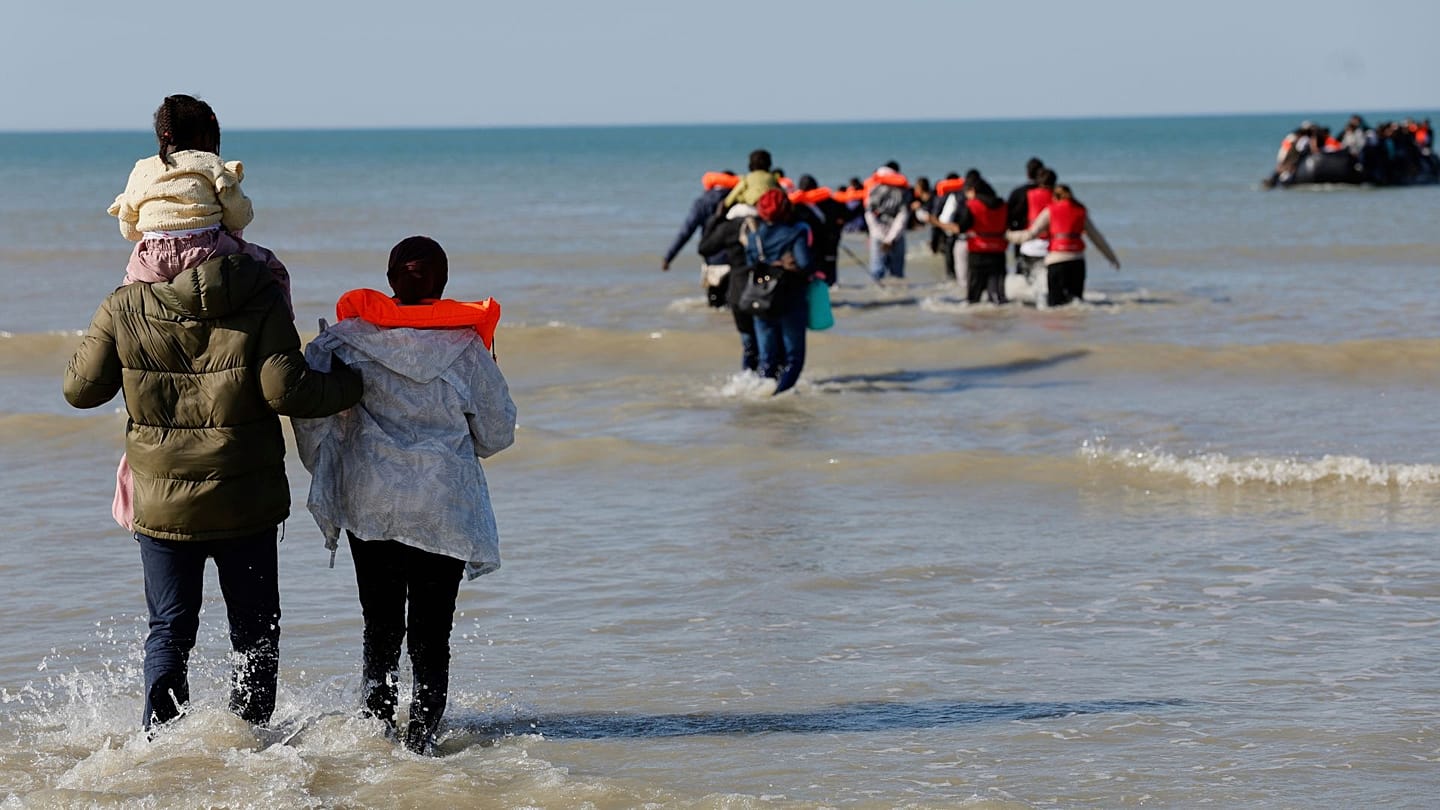UK to announce biggest immigration shake-up, including temporary asylum and stricter conditions for protection
Britain announced on Saturday 15 November that it will begin the biggest review of its asylum policies in recent times. The plan is inspired by Denmark’s approach, which is seen as one of the strictest in Europe and has drawn criticism from human rights groups.
The British government, led by the Labour Party, has tightened its immigration policies, especially on illegal crossings in small boats from France, the plan is to be unveiled in full on Monday.Simultaneously, a populist party called “Reform Britain” has become wildly popular in Britain, making the issue of immigration the centerpiece of political debates, thereby pressuring the ruling party to take a tougher stance on immigrants.Financial support for fit to work asylum seekers is cutBritain's Home Office said in a statement that under the new reforms, aid will become "discretionary", meaning it will be able to deny those are fit to work.On Monday, Mahmood will unveil more details of the measures, which the Home Office says are designed to deter illegal arrivals and speed up their repatriation.In a letter to Ms Mahmood, more than 100 British charities urged her to end “the victimisation of migrants and display policies that only cause harm,” saying the measures served to stoke racism and violence.In the UK, the issue of immigration now overtakes the economy as voters’ top concern, according to polls.Denmark's Pattern: From Temporary Asylum to Property SeizureIn the year to March 2025, more than 109,000 people applied for asylum in the UK, an increase of 17 per cent on the year before and 6 per cent surpassing the record high of 2002.Britain's Home Office said its new reforms would be based on the models of Denmark and other European countries; countries where asylum is of a temporary nature, protections are offered conditionally and asylum seekers are expected to integrate into society.In early 2025, a delegation of senior officials from the British Home Office travelled to Copenhagen to study Denmark's approach to asylum, an approach in which migrants only receive temporary residence permits, usually for two years, and then reapply once they expire.If Denmark's Social Democrat government recognizes the country where they live as safe, asylum seekers can be returned.The path to attaining citizenship has also become longer and more difficult, and stricter rules have been imposed on the reunification of family members.Among other measures, a 2016 approved law gives Danish authorities the authority to seize valuable assets of asylum seekers and use it to recoup support costs, a measure that has provoked much controversy.What is the current situation for asylum seekers in the UK?Britain currently grants asylum to people who can prove they are not safe in their home country, and refugee status is granted to those who are subject to persecution.Asylum status in the United Kingdom is valid for five years, and after this period has elapsed, refugees can apply for a permanent residence permit if they meet certain criteria.Denmark has been renowned for its strict immigration policies for more than a decade, and the country's Ministry of Internal Affairs has said the policies have reduced asylum applications to the lowest level in 40 years, with around 95 percent of rejected applicants being deported from the country.Anti-immigration sentiment has been on the rise in Britain and this summer, demonstrations were held outside government-funded hotels housing asylum seekers.This anti-immigrant attitude is also prevalent across the EU, particularly after more than a million people, mostly Syrian refugees, arrived in Europe via the Mediterranean between 2015 and 2016, putting severe strain on the infrastructure of some countries.Given the failure of EU member states to reach an agreement on sharing asylum responsibilities, they have turned their focus to returning asylum seekers and reducing the number of arrivals.


